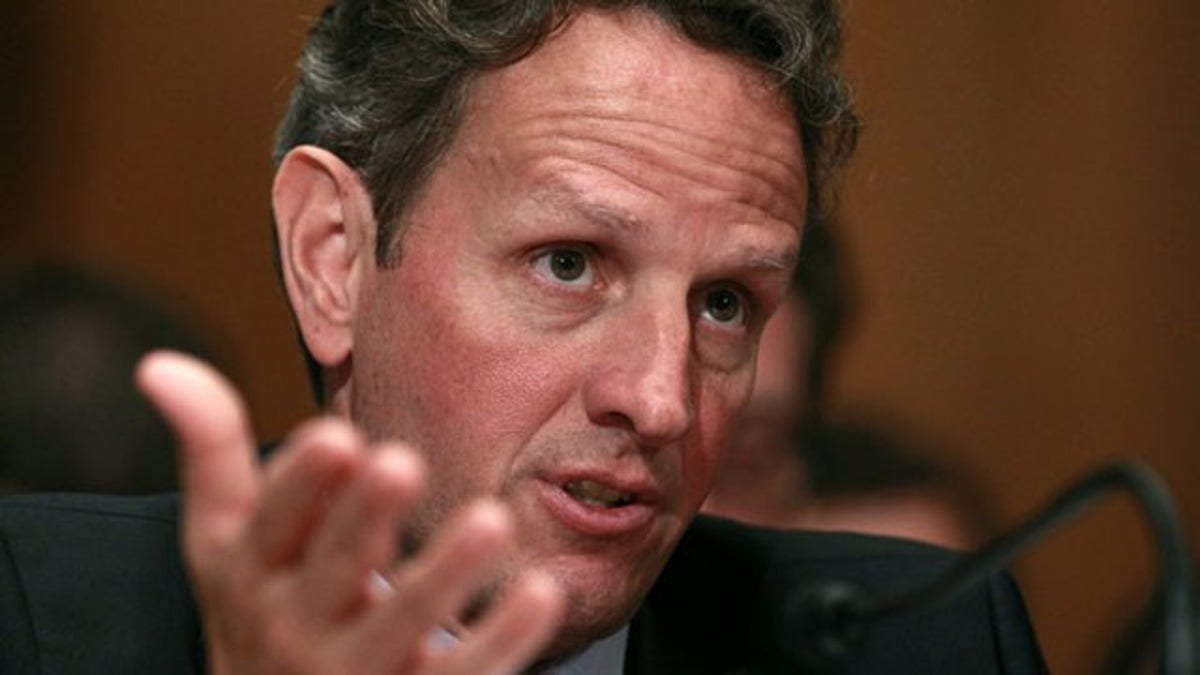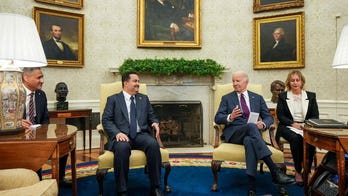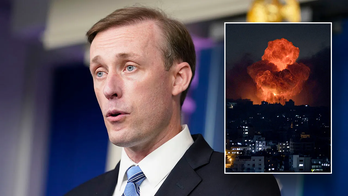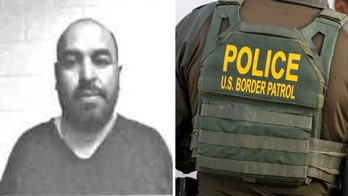
Treasury Secretary Tim Geithner testifies before a congressional panel in Washington, D.C., June 22. (Reuters Photo)
Treasury Secretary Timothy Geithner on Sunday disputed claims that allowing a portion of the Bush tax cuts to expire will choke economic growth, saying the government needs to do the "responsible" thing and show the world it is capable of tackling the deficit.
The treasury secretary argued that the economy, despite lackluster employment figures, is "starting to heal again." Citing growth in manufacturing, he said there's little chance of a so-called double-dip recession and dismissed lawmakers' concerns that anything less than a complete extension of the Bush tax cuts could short-circuit an economic turnaround.
Geithner backed President Obama's plan to extend income tax cuts for the middle class and let the tax breaks for the wealthiest Americans expire. He also said he will push to bring the capital gains tax back to 20 percent, from 15 percent.
"We think it's fair. We think it's responsible," he said on ABC's "This Week," arguing that the top 2 or 3 percent of income-earners can take the hit, as can the economy. "We think that's the responsible thing to do, because we need to make sure we can show the world that (we're) willing as a country now to start to make some progress bringing down our long-term deficits."
He said he does not think the changes will have a "negative effect" on economic growth.
The Bush tax cuts, which affect every income bracket, are set to expire at the end of the year unless Congress acts to extend all or part of them. With the financial industry overhaul signed into law, the tax cut issue represents one of the biggest battles left for Congress this year.
Some argue that the provisions for the wealthy should be allowed to expire in part because the wealthy are more likely than middle-class earners to pocket that savings rather than spend it and stimulate the economy. Plus, the Obama administration estimates that allowing the tax cuts for the wealthy to lapse can save the government nearly $700 billion over the next decade.
But Republicans have argued that those tax cuts will hit small business owners and it's not just the so-called wealthy who stand to lose. Democrats have chimed in as well, with Sen. Evan Bayh, D-Ind., and Sen. Kent Conrad, D-N.D., recently questioning whether the economy is too fragile to withstand the tax increase.
Conrad told reporters last week that the "rule of thumb" is Congress should not fiddle with tax increases until the economy is on "more solid ground."
Federal Reserve Chairman Ben Bernanke also said last week that extending the tax cuts could serve as "fiscal support, stimulus for the economy." He did not say whether he backed the Democrats' or Republicans' plan.
Republicans and Democrats are locked in a bitter argument over who is least responsible when it comes to the deficit. While the Obama administration slams Republicans for pushing tax cuts for the wealthy, Republican leaders put up a spirited -- and ultimately unsuccessful -- fight against Democrats trying to extend unemployment aid without paying for it.
If no changes are made, the expiration of the tax policy will raise the lowest 10 percent bracket to 15 percent. It will raise the 25 percent rate to 28 percent; the 28 percent rate to 31 percent; the 33 percent rate to 36 percent; and the 35 percent rate to 39.6 percent.
It would also dramatically increase the investment tax rate on dividends, lower the child tax credit from $1,000 to $500 and remove tax protections for married couples.
Geithner said Sunday that the administration is pushing for a tax cut extension for 95 percent of working Americans, as well as a set of incentives for businesses.
"The economy can withstand that," he said on NBC's "Meet the Press."
Despite some debate on Capitol Hill over the timeline for tackling the extension, Geithner said Congress should "absolutely" deal with the issue before the November election.




